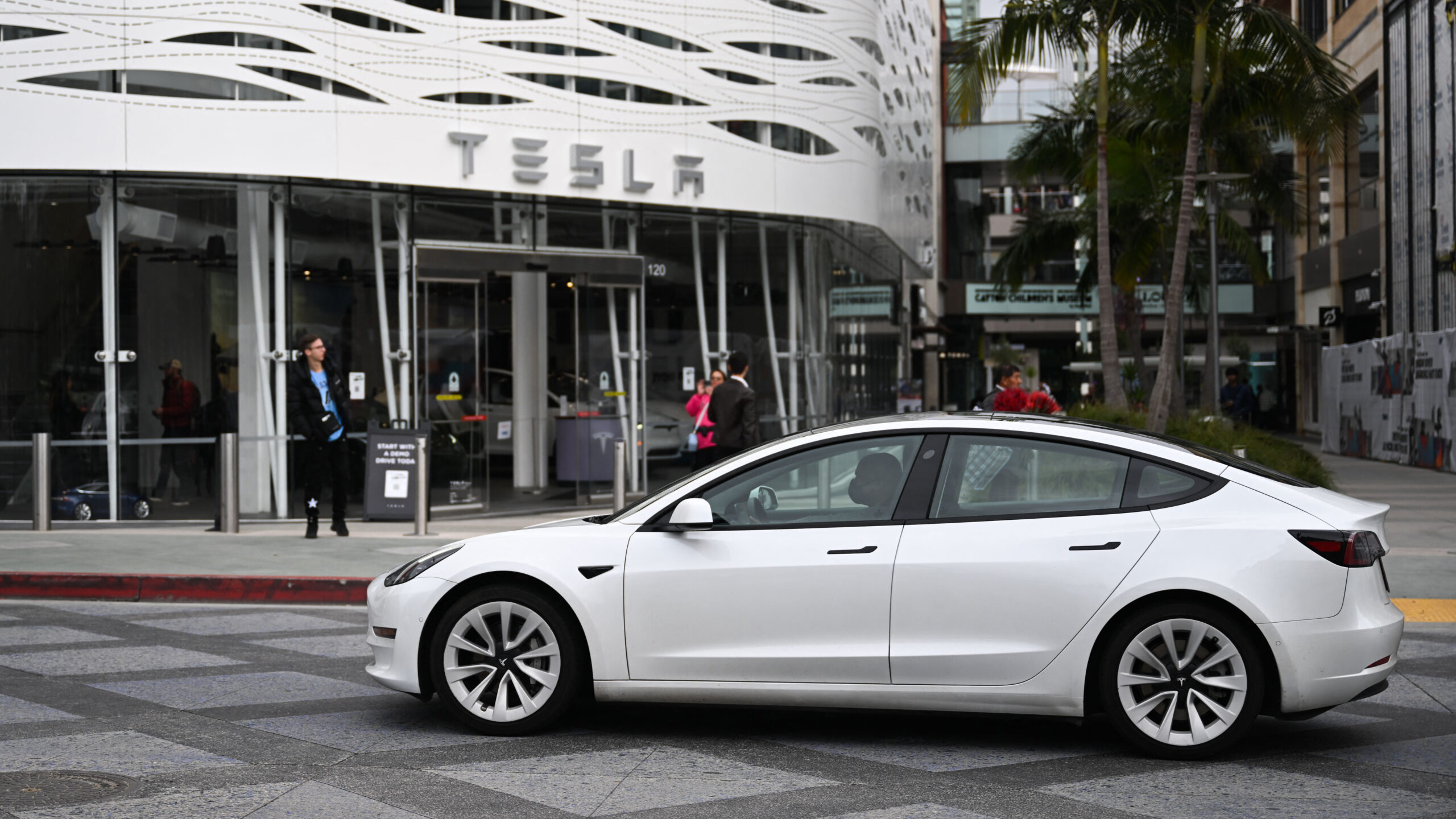Auto Dealers Renew Fight Against EV Sales Requirements

Table of Contents
Economic Concerns Fueling Dealer Opposition
The economic implications of meeting mandated EV sales quotas are a primary driver of dealer opposition. Dealers face significant financial burdens that threaten their profitability and long-term viability. These concerns extend beyond simply selling a different type of vehicle.
- High upfront investment in EV infrastructure: Adapting dealerships to handle EVs requires substantial investment in charging stations, specialized tools, and employee training. This is a significant capital outlay, particularly for smaller, independent dealerships with limited resources.
- Uncertain consumer demand: Predicting consumer demand for EVs in specific geographic markets is challenging. Mandates force dealers to invest heavily in inventory, carrying the risk of being saddled with unsold electric vehicles if consumer adoption lags behind projections.
- Reduced profit margins: Many dealers report lower profit margins on EVs compared to gasoline-powered vehicles, further exacerbating the financial strain of meeting sales quotas. This is partly due to the higher initial cost of EVs and the competitive pricing pressures in the market.
- Inventory management challenges: Balancing inventory of both gasoline and electric vehicles presents a significant logistical and financial hurdle. Misjudging consumer demand can lead to either lost sales opportunities or substantial losses on unsold inventory.
- Insufficient government support: Dealers argue that they lack adequate government support to facilitate the transition to EV sales. Financial incentives, tax breaks, and assistance with infrastructure development are often cited as crucial elements that are currently lacking.
Dealers argue that the financial burden imposed by these mandates disproportionately affects smaller dealerships, potentially driving them out of business and reducing competition within the automotive market.
Consumer Choice and Market Readiness Concerns
Beyond economic concerns, auto dealers voice strong concerns about consumer readiness and the premature imposition of EV sales mandates. They argue that these mandates ignore current market realities and consumer preferences.
- Ignoring consumer preferences: Mandates, they claim, disregard existing consumer preferences, which often favor gasoline-powered vehicles due to factors like cost, range anxiety, and charging infrastructure limitations.
- Affordability issues: The higher purchase price of EVs compared to gasoline vehicles makes them inaccessible to many consumers, hindering widespread adoption. Subsidies and incentives, while helpful, often don't fully bridge this affordability gap.
- Range anxiety and charging infrastructure: Range anxiety and the scarcity of public charging infrastructure remain major barriers to EV adoption. Many consumers are hesitant to switch to EVs unless their concerns about range and charging access are adequately addressed.
- Lack of consumer education: Many consumers lack a thorough understanding of EV technology, maintenance, and overall benefits. This lack of knowledge further fuels hesitancy towards adopting EVs.
- Potential for market saturation: If supply significantly exceeds demand – as could happen under forced sales quotas – the market could become saturated, leading to price wars and further financial losses for dealerships.
Dealers emphasize the importance of a market-driven transition to EVs, arguing that mandates should only be implemented once consumer demand and market infrastructure are sufficiently developed.
The Lobbying Efforts and Political Landscape
The opposition to EV sales requirements is not passive; auto dealers are actively engaged in lobbying efforts and legal battles to influence policy decisions.
- Intensive lobbying campaigns: Dealer associations and industry lobbyists are actively engaging in lobbying efforts at both the state and federal levels, aiming to influence legislation and regulatory changes.
- Legal challenges: Numerous lawsuits have been filed challenging the legality and fairness of state and federal EV mandates. These legal battles are shaping the trajectory of EV adoption policy.
- Political alliances: The automotive industry’s political influence and alliances play a crucial role in shaping the debate. The industry's lobbying power is significant and influences political support (or opposition) for these regulations.
- Alternative policy proposals: Dealers are not simply opposing mandates; they are actively proposing alternative policies aimed at promoting EV adoption in a more gradual and market-driven manner.
This intense political engagement highlights the significant stakes involved and the determination of dealers to influence the policy landscape.
State-Level Variations and the Patchwork of Regulations
The complexities are compounded by inconsistencies in EV sales requirements across different states. This creates significant challenges for auto dealers operating across multiple jurisdictions.
- Inconsistent mandates: States have implemented varying EV sales requirements, leading to a patchwork of regulations across the country. This creates challenges in inventory management, marketing, and compliance.
- Regional disparities: Regional differences in consumer preferences, market conditions, and charging infrastructure influence the effectiveness and feasibility of state-level mandates. A "one-size-fits-all" approach may not be suitable for every region.
- Compliance difficulties: Navigating a complex and inconsistent regulatory environment is challenging and costly for dealerships. The administrative burden of complying with different state regulations places a significant strain on resources.
Conclusion
The fight against mandatory EV sales requirements is a significant and ongoing struggle. Auto dealers are raising legitimate concerns regarding the economic viability of these mandates, consumer market readiness, and the potential for unintended negative consequences. Their lobbying efforts and legal challenges illustrate the substantial hurdles in transitioning to a fully electric vehicle market. Understanding these multifaceted challenges is critical for all stakeholders involved. Continue to follow this critical discussion as auto dealers and policymakers grapple with the future of EV sales requirements and their impact on the automotive industry.

Featured Posts
-
 Exclusive Report The U S Armys Expanding Drone Fleet And Capabilities
May 03, 2025
Exclusive Report The U S Armys Expanding Drone Fleet And Capabilities
May 03, 2025 -
 Enhanced Player Experience Fortnite Item Shops Latest Feature
May 03, 2025
Enhanced Player Experience Fortnite Item Shops Latest Feature
May 03, 2025 -
 Understanding Shrove Tuesday The Origins And Meaning Of Pancake Day
May 03, 2025
Understanding Shrove Tuesday The Origins And Meaning Of Pancake Day
May 03, 2025 -
 Macron Et La Russie Une Pression Renforcee Dans Les Prochains Jours
May 03, 2025
Macron Et La Russie Une Pression Renforcee Dans Les Prochains Jours
May 03, 2025 -
 School Desegregation Order Ended A New Era For Schools
May 03, 2025
School Desegregation Order Ended A New Era For Schools
May 03, 2025
